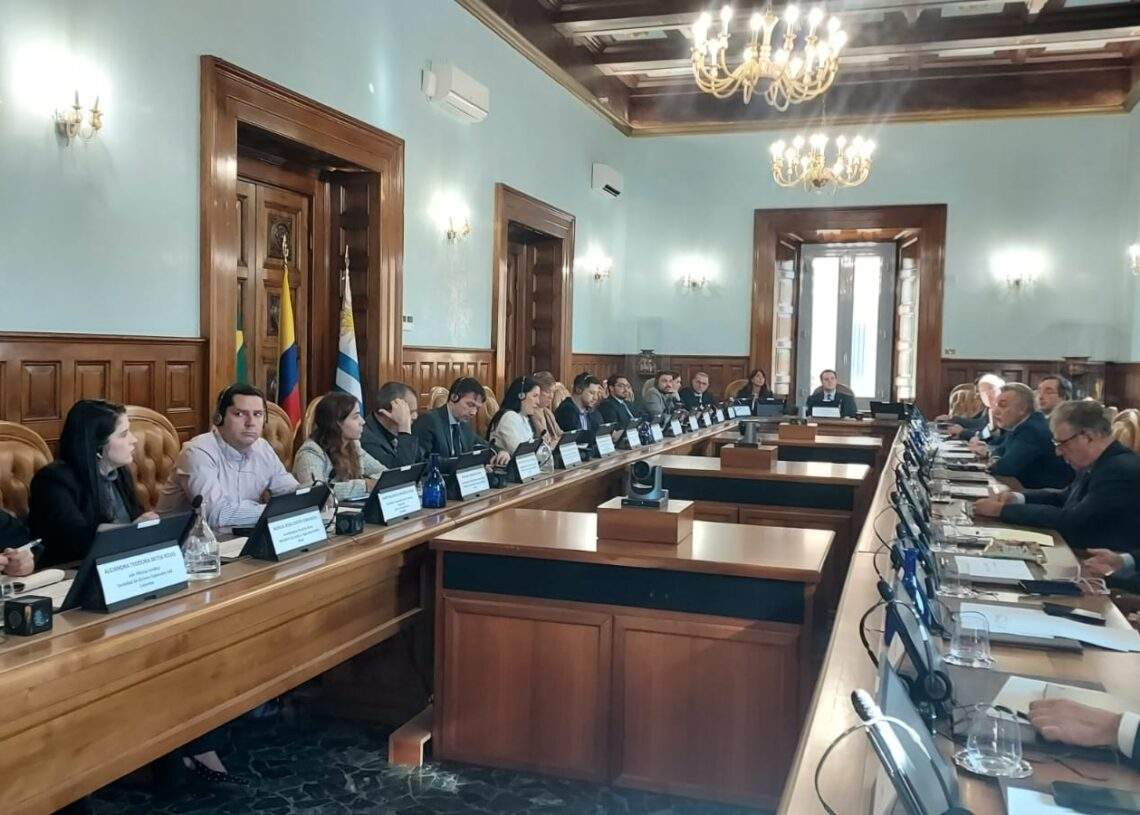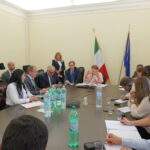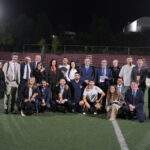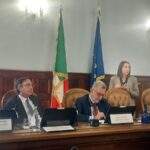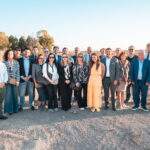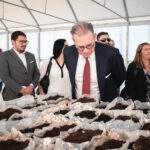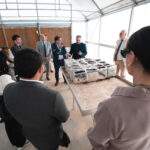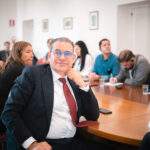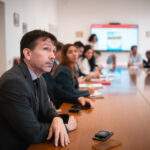In the framework of the international cooperation programs COPOLAD III and EL PACCTO 2.0, financed by the European Union, official delegations from Colombia, Brazil and Uruguay held working meetings in France and Italy from September 29 to October 4, 2025. The main objective is to promote the exchange of knowledge and experiences with leading European institutions in the recovery and social reuse of assets confiscated from organized crime, in order to identify mechanisms adaptable in the participating countries and draft a joint roadmap for cooperation.
The programs EL PACCTO 2.0, focused on the fight against transnational organized crime, and COPOLAD III, dedicated to improving drug policies, operate in Latin America and the Caribbean. From complementary perspectives, both programs address asset recovery, management of confiscated goods, and their allocation for public and social purposes. This mission reinforces the European Union’s commitment to international cooperation in the areas of justice, security, and social development, offering an integrated vision. The technical visit seeks to facilitate the strengthening and development of institutional capacities in Colombia, Brazil and Uruguay in the management of seized assets, promoting their transformation into resources of public usefulness, local development, and social cohesion. This approach, known as social reuse, is based on giving back to communities what crime has taken from them.
The visit began in France, at the French Agency for the Management and Recovery of Seized and Confiscated Assets (AGRASC), which centralizes the administration, conservation and sale of assets seized and confiscated in criminal proceedings. In 2023, France exceeded €1 billion in confiscated assets. The delegations also met the specialized counterfeit-detection team among seized and confiscated goods of the Louis Vuitton Moët Hennessy (LVMH) business group, and held discussions with directors of the judicial registry and the judges of the Créteil Court.
In Italy, the Latin American delegations held meetings with the National Agency for the Administration and Destination of Seized and Confiscated Assets (ANBSC), the National Anti-Mafia and Counterterrorism Directorate (DNA), the Central Directorate of Anti-Drug Services (DCSA), and the civil society organization Libera, promoter of Law 109/1996 on social reuse. They also visited confiscated assets that today provide a local public service, such as the Montespaccato Sports Center and the Gym of Legality in Rome, the Agrorinasce consortium in Casal di Principe, the Foundation A Voce d’e Creature in Naples.
The Colombian delegation was headed by the Vice Minister for Criminal Policy and Restorative Justice and the Vice President of the Special Assets Society (SAE), as well as members of the Rural Development Agency (ADR). From Brazil, four representatives of the National Secretariat for Drug Policy (SENAD) responsible for managing seized assets participated. Uruguay was represented by the coordinator of the Confiscated Assets Fund of the National Secretariat for Drugs.


